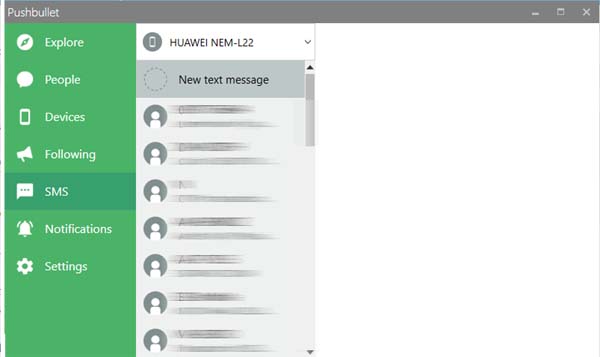
Not only will they be listed on the Recent files screen, you can even browse your Portal files right from the Android file picker. Portal is also integrated into Android's built-in file browser. "Easily seeing your files in the Portal app is great, but we didn't stop there. From there, all you have to do is drag and drop files onto your browser to send them to your smartphone. As part of the synchronization process for the app, you'll be scanning a QR code on the website to pair your PC with your phone. You'll just have to point your browser to (Opens in a new window).
:max_bytes(150000):strip_icc()/PushbulletChrome-c5422789d9b0444b9c623fd564c3a22f.jpg)
You won't have to install a separate extension on your desktop or laptop PC to use Portal. Both are great for quick small file transfers though!" "Pushbullet doesn't need your devices to be on the same network, but this means it doesn't handle very large files or many files as well as Portal can. "Portal enables you to transfer many files or very large files in a snap, but requires that your phone and computer are on the same Wi-Fi network," the company said. "Portal and Pushbullet have a different set of strengths and we think you'll appreciate having the choice," Pushbullet said in a blog post (Opens in a new window). Unfortunately, you will have to install a separate app to benefit from the new features, as Pushbullet did not bake Portal's capabilities directly into the Pushbullet app (and extension).

There are plenty of other apps that perform a similar task, but Pushbullet is hoping that Portal will be come the default choice for those who are already a fan of Pushbullet's regular PC-to-phone features. Instead, it's an Android app that simplifies the process of getting files from a PC to your smartphone. Pushbullet's Portal (Opens in a new window), in contrast, has nothing to do with bending the laws of physics.

Here's hoping Pushbullet doesn't get sued by Valve since the name Portal is currently synonymous with its popular, puzzle-based video game.


 0 kommentar(er)
0 kommentar(er)
